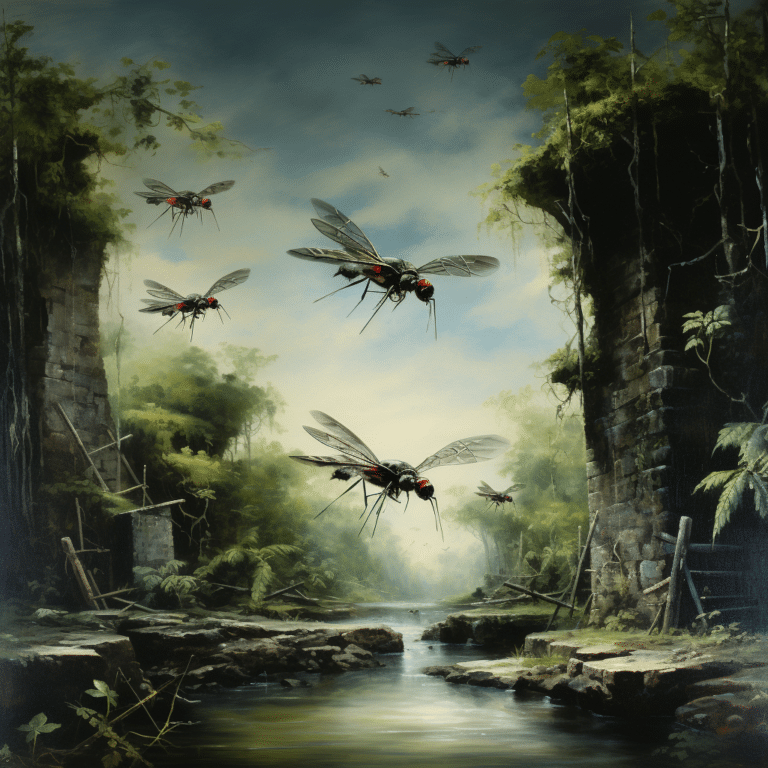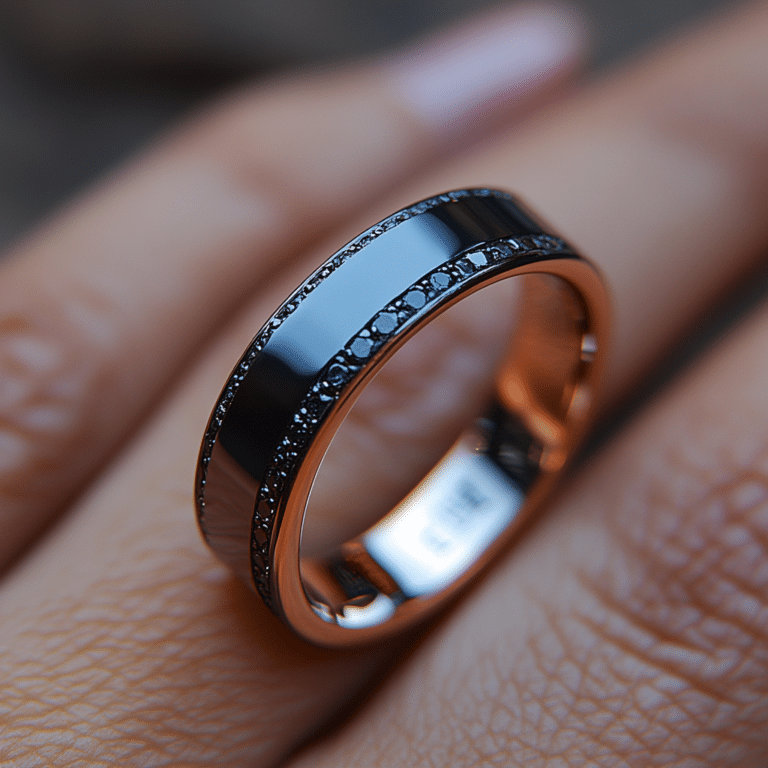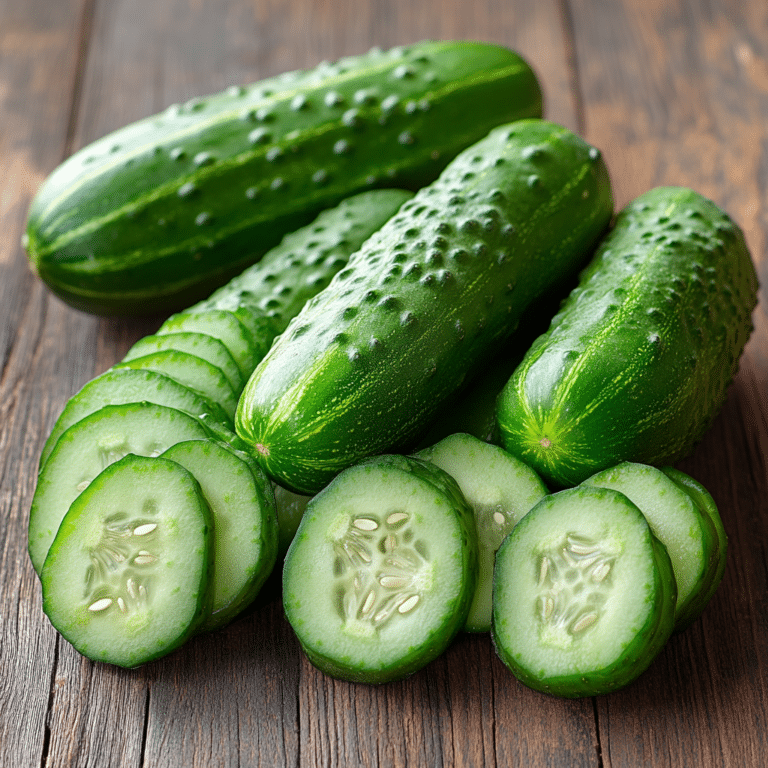Amidst the humidity and the hustle, Baltimore summers bring an orchestra of insects, buzzing and flitting in the twilight. Among them, a particularly enigmatic character often triggers a blend of reverence and repulsion—the Mosquito Hawk. This creature, often spotted pirouetting in backyards, basements, and around street lamps, carries with it a shroud of folklore. Naturally, as a devoted servant of the truth, it’s imperative that we at the Baltimore Examiner clarify the reality of these winged beings, stripping away the myth to appreciate the magic of facts.
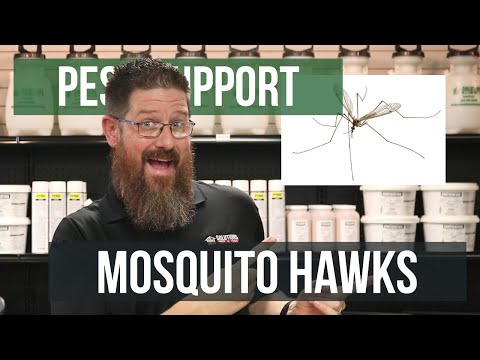
Unveiling the Truth: What Are Mosquito Hawks?
Mosquito hawks, or crane flies, are frequently misunderstood insects. Far from the vampiric menace some might suspect, these lanky, flying insects neither bite nor sting, proving that looks certainly can be deceiving. Common misconceptions often cast these creatures as voracious predators of mosquitoes, but unfortunately, these fanciful tales crumble under scrutiny. While they might bear a fleeting resemblance to our dreaded bloodsucking nuisances, they’re more innocent bystanders than they are caped crusaders in our summertime bug battles.
The myth of mosquito hawks has its foundation in understandable misassumptions. Their tantalizing name alone evokes images of aerial predators swooping down upon unsuspecting mosquitoes. However, sometimes a name is merely that—a name—and not an accurate job description.
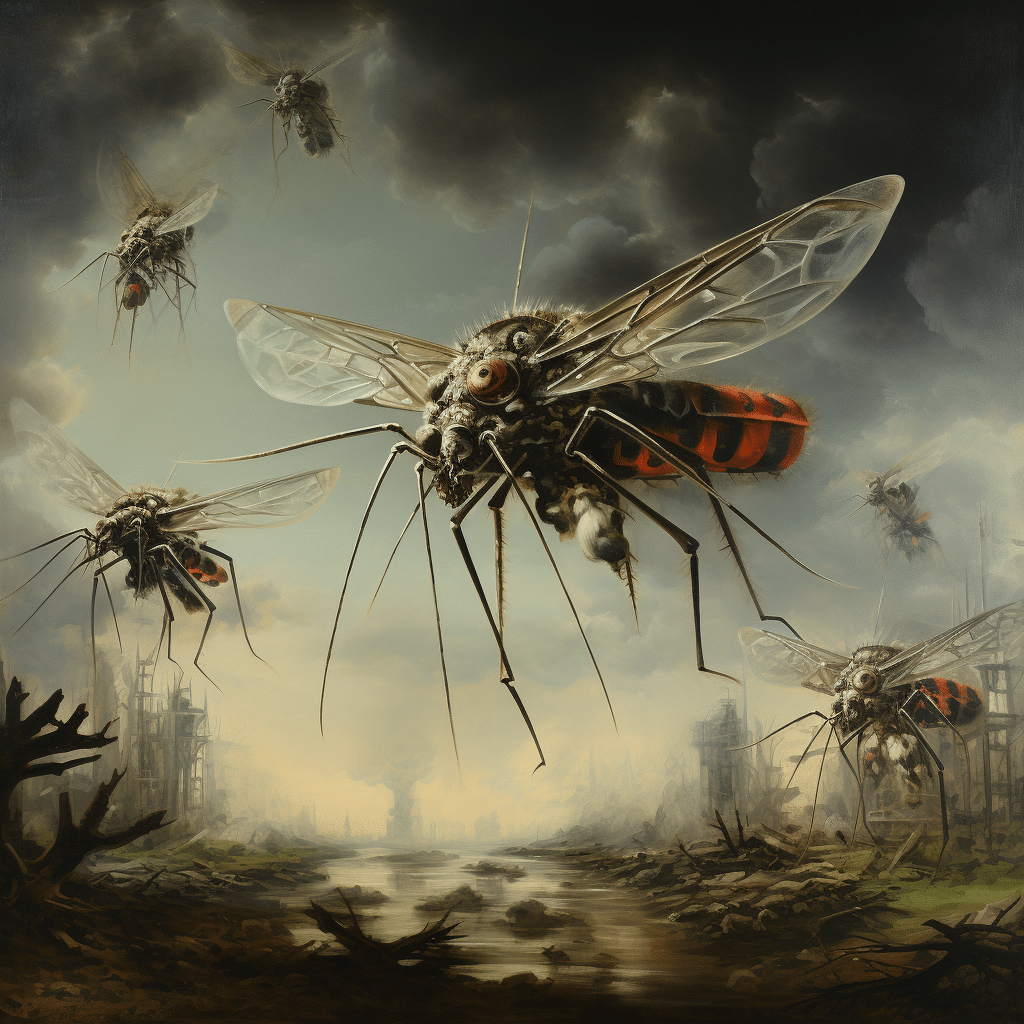
Demystifying the Diet: Do Crane Flies Eat Mosquitoes?
Do crane flies eat mosquitoes? This question has propelled many to assign to these gangly insects, the status of a symbol of biological mosquito control. Alas, the narrative comes undone under the gaze of entomological expertise. The reality is that adult crane flies are more likely to starve than to chow down on their fellow insects. These adults are ephemeral, many lacking functional mouthparts entirely, rendering them incapable of making a meal of mosquitoes or anything else for that matter.
Bearing witness to this are the experts at the University of Maryland’s Department of Entomology, who have meticulously observed the feeding patterns of mosquito hawks. It seems these creatures may be more focused on love than war in their brief adult existences, their purpose more about mating than masticating. Weighing the impact of these gentle giants against other ravenous mosquito foes, it becomes evident that dragonflies, with their keen predatory prowess and remarkable visual acuity, are far more deserving of the mosquito hawk moniker.
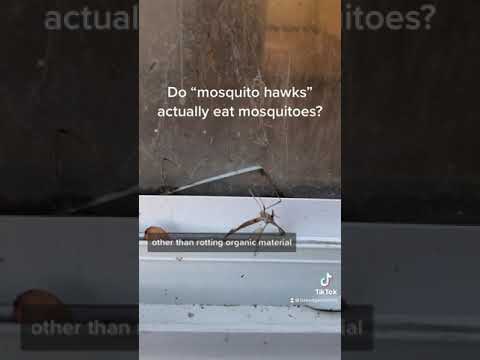
| Aspect | Mosquito Hawks (Crane Flies) | Dragonflies (Actual Mosquito Hawks) |
|---|---|---|
| Scientific Name | Varies (Family: Tipulidae) | Varies (Order: Odonata) |
| Common Misconception | They eat mosquitoes | – |
| Diet | Larvae: roots and stems; Adults: do not feed | Larvae: Aquatic organisms; Adults: Insects |
| Lifespan | Adults live 10-15 days | Adults live about a month |
| Habitat | Wetlands, grassy areas | Near water bodies like ponds and marshes |
| Threats to Humans | None, they neither bite nor sting | None, they are beneficial by eating pests |
| Larval Description | White or brown worms that can damage vegetation | Aquatic, often referred to as “nymphs” |
| Invasive Species | European and Marsh Crane Flies in the USA | – |
| Damage | Can destroy crops; Some feed off rotting wood | – |
| Role in Ecosystem | Aerate soil; food for predators | Control mosquito populations; Indicator species |
| Adaptations | – | Eyes with up to 30,000 lenses for vision |
| Adult Appearance | Thin body, long legs, large wings | Strong, agile fliers; varied colors |
| Significance | Misidentified as mosquito predators | Actively reduce mosquito populations |
The Life Cycle of a Mosquito Hawk: Understanding the Basics
To truly grasp the ecological nuance of mosquito hawks, we must delve into their life cycle:
The Smithsonian Environmental Research Center has illuminated the ecological role of these insects. They are not just passing phantoms of flimsy lore; mosquito hawks contribute significantly to soil aeration, enhancing the very earth beneath our feet. The larvae, while potential pests, are also crucial players in the decomposition processes that underpin a healthy ecosystem.
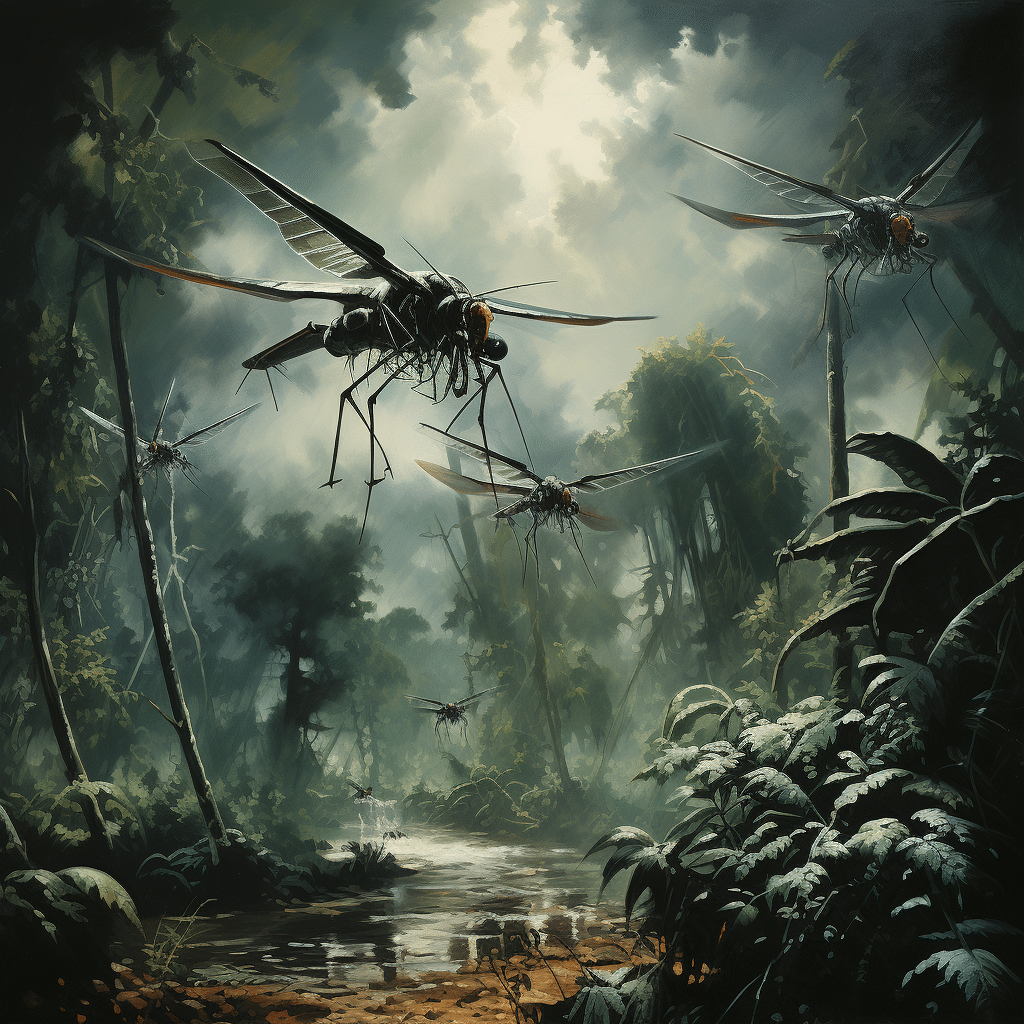
The Misunderstood Role of Mosquito Hawks in Ecosystems
Beyond the buzz about mosquito predation, crane flies serve a more profound purpose. Their true calling as ecological contributors can often be overlooked. Recent research has highlighted these insects’ contributions to soil health, which is especially relevant considering Maryland’s diverse terrain from the Atlantic coast to the Appalachian mountains.
A case study close to home, in Maryland’s wetlands, Eldersburg bogs, and the floodplains of Ellicott City, depicts a microcosm where crane flies play their part. They are not the harbinger of doom for crops or the knight in shining armor for mosquito-ridden evenings, but rather, they are tillers of the soil, unseen custodians of the earth’s rich tapestry.
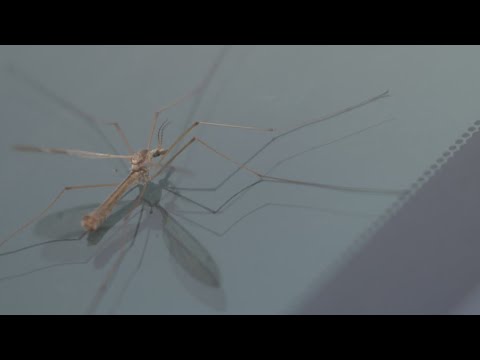
Investigating the Efficacy of Mosquito Hawks as Natural Pest Control
Acknowledging that crane flies do not indulge in mosquito feasts begs the question: how effective are they in controlling mosquito populations through indirect means, then? The Maryland Department of Agriculture, diving into the fray of biological control methods, finds the impact of crane flies to be minimal at best in mosquito management. Other agents like dragonflies and bats cut more formidable figures in this ongoing saga, with adaptations that position them in the upper echelons of insectivorous excellence.
Innovative Alternatives to Mosquito Hawks for Mosquito Management
Given that our creature feature this evening, the mosquito hawk, falls short of its legendary billing, what, pray tell, could step into this void? The forward march of science has led to an arsenal of biocontrol techniques—ingenious strategies that harness the powers of nature without tipping its delicate scales.
Our local pest control virtuosos speak of a promising cast, a lineup of alternatives such as bacterial insecticides and the introduction of predator species. Beyond the reach of spray bottles and electric zappers, the dawn of genetic engineering unfurls like the plot of a speculative fiction narrative, with the release of genetically modified mosquitoes deemed a game-changer in the war on these pervasive pests. Nevertheless, such approaches tread a fine line, the implications upon ecosystems as yet unfathomed.
Conclusion: Separating Fact from Fiction in the Legend of Mosquito Hawks
As dusk settles upon Charm City, and the silhouette of a mosquito hawk crosses the amber glow of a streetlamp, let us part ways with misconceptions. Despite their intimidating stature, these insects are neither bloodthirsty nor particularly heroic in our daily skirmishes with mosquitoes. They are a slight twist in the narrative of ecological interplay; a testament to the complexity and beauty underpinning our natural world.
Today’s exploration reasserts the critical importance of discerning the roles of insects within our ecosystems, grounded in fact. With eyes set on the horizon, we can anticipate a future where our strategies for mosquito management are founded not on folklore but on the bedrock of science, conservation, and innovation.
Unraveling the Mysteries of Mosquito Hawks
You’ve probably heard a neighbor or two swearing up and down that those gangly insect aviators buzzing around the porch light are nothing less than mosquito hawks, sent from heaven to devour every last bloodsucker in the yard. But hold your horses! Before you start counting on these critters to clear your next barbecue of uninvited winged pests, let’s dive into some intriguing facts about these so-called mosquito hawks.
“Mosquito Hawk” Misnomer Mayhem
First things first, what’s in a name? You might think, like finding the cast Of The Wiz in their iconic roles, that a mosquito hawk must be the Arnold Schwarzenegger of the insect world, right? Well, spoiler alert: they’re more like the Theresa Randle – often mistaken but definitely in the game. These insects, often referred to as mosquito hawks, are actually crane flies – and guess what? They don’t eat mosquitoes at all! That whole mosquito-munching myth is as real as those Walmart Christmas cards featuring a snowman sunbathing in the Bahamas.
The Gourmet Diet of a Non-Hawk
So, if they’re not feasting on mosquitoes like some Scorigami Nfl game scoring points in unexpected ways, what are these imposters chomping on? Well, the plot thickens: adult crane flies might just rival you at a juice bar because they’re primarily nectar sippers or don’t eat anything at all during their short-lived adult stage. Yes, you heard that right. If mosquito hawks were on a dating show, their bio would be “Enjoys long walks on the windowpane, the occasional sip of nectar, and absolutely no mosquitoes.
A Scene Right Out of a Crime Show
Now, let’s talk larvae. Imagine a Neal Mcdonough detective episode where he’s uncovering the hidden lives of these creatures. Crane fly larvae do have a taste for organic matter and plant roots, but they’re not the Sherlock Holmes of tracking down mosquito larvae. In fact, their appetite for your lawn’s roots might be akin to someone finding those Cvs in Target deals – opportunistic and not that concerned with the broader context of the garden ecosystem.
What About Mosquito Control?
Alright, so perhaps you’re scratching your head, wondering Which Vs What about these insects is magical if they’re not annihilating mosquito populations? While crane flies might not be your solar-powered,solar watch precision pest control agents, they play their part in the circle of life. They’re part of that great big food web, where birds and other critters are thankful for their existence. So, no magic wand for mosquitoes, but hey, the birds are happy!
But Wait, There’s More!
And for the grand finale, did you know that crane flies are old souls in the insect world? No kidding, some of their fossils date back to the Jurassic period. Talk about Chatgpt no Restrictions – these guys have been kicking it around for over 180 million years! They’ve seen dinosaurs come and go, and they’re still here, labelled mosquito hawks, and causing a buzz of confusion wherever they go.
So, next time you see a crane fly, tip your hat to the long lineage and maybe crack a joke about its misleading reputation. It may not be the mosquito hunter we dreamed of, but it sure has a long history of keeping us on our toes. And who knows, maybe its real magic is just reminding us that, in nature, things are rarely as simple as they seem.
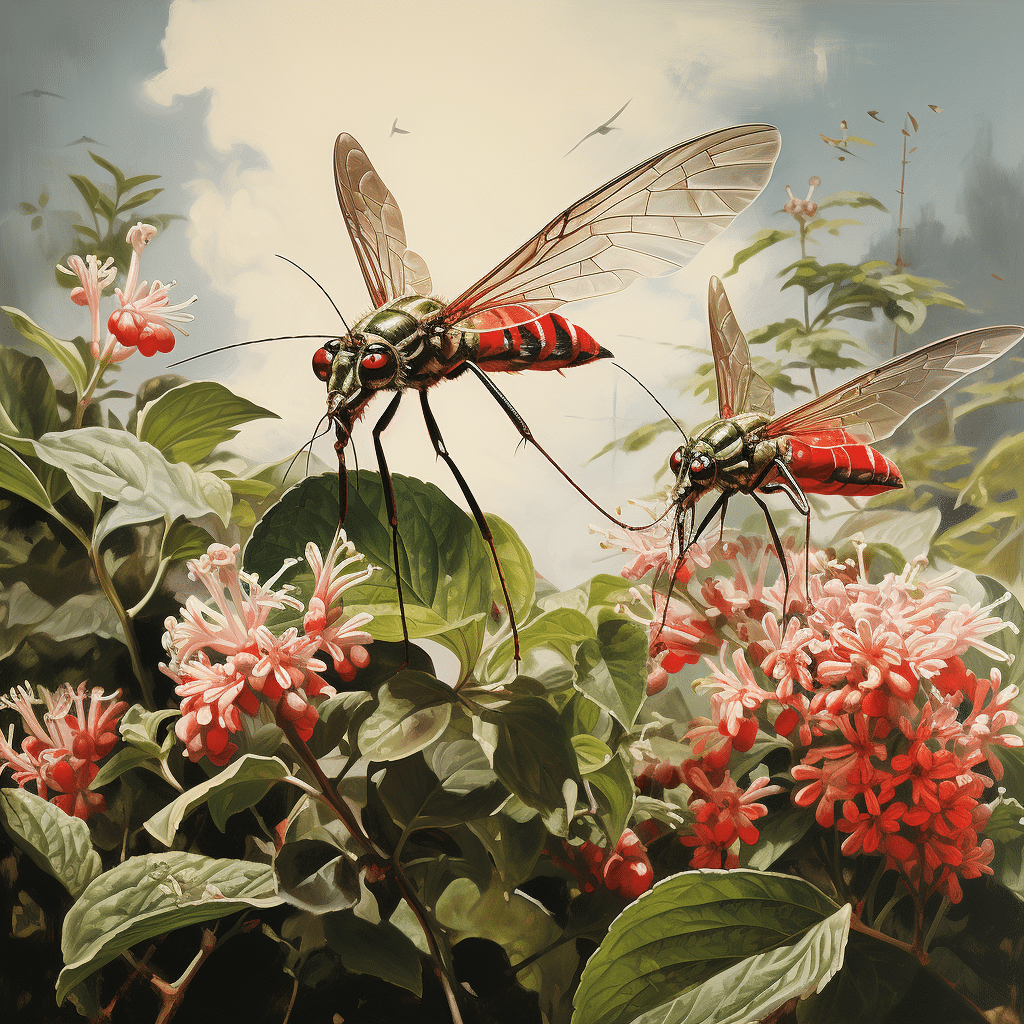
Can a mosquito hawk sting you?
Oh, heck no! Despite their fierce moniker, mosquito hawks—or crane flies—can’t sting you. They may look like they’re straight out of a bad dream, but these gangly insects are all show and no sting, buzzing into your space with not a single weapon on ’em.
Are mosquito hawks good or bad?
Listen up, folks—mosquito hawks might seem a bit of a nuisance when they clumsily bump into your porch lights, but they’re far from being the bad guys! Some gardeners say they’re a mixed bag since their larvae can munch on plant roots, but for the most part, they’re just part of the great circle of life and not harmful critters.
Are mosquito hawks invasive?
Worry not, my fellow bug buffs: mosquito hawks aren’t muscling in like some backyard bullies. They aren’t considered invasive, really, just part of the local insect troupe that takes to the stage come spring and summer.
What’s the difference in a dragonfly and a mosquito hawk?
Alright, let’s break it down: dragonflies are like the acrobats of the sky—slick, speedy, and they snag mosquitoes right out of the air like tiny fighter jets. Mosquito hawks, well, they’re more like the clumsy cousins that got a similar look but none of the predator cred. Plus, dragonflies are built sturdier with bulkier bodies and two sets of wings that mean business.
Why are mosquito hawks so bad?
Now, before we go dissing mosquito hawks, let’s be clear: they aren’t the villains of the story. Sure, they might swarm in like an uninvited guest, but the rep they have for being bad is kind of overblown. They’re just bumbling about, not looking to harm your plants on purpose.
Do mosquito hawks actually eat mosquitoes?
Here’s the juicy bit: despite their name, mosquito hawks don’t actually snack on mosquitoes. I know, it’s like naming a cat “Barky” and finding out it can’t woof. These critters might be flying around your backyard, but they’re not clearing out those pesky mosquitos like you’d hope.
Are mosquito hawks poisonous to dogs?
Hey, pet lovers, take a breather! Mosquito hawks, or crane flies, are pretty chill when it comes to your furry friends. They’re not poisonous to dogs, so if Fido tries to play with one, there’s no need to panic.
Why are they called mosquito hawks if they don t eat mosquitoes?
So, why the heck are they called mosquito hawks if they don’t eat mosquitoes? Alright, here’s the scoop: It’s a classic case of mistaken identity! Someone way back when probably saw them and thought, “Hey, with a nose like that, they gotta be hunting mosquitos.” But, turns out, they’re more into sipping nectar or just chillin’ and not munching on mosquitoes.
Do mosquito hawks drink blood?
Nope, mosquito hawks don’t have a taste for the red stuff. They aren’t like those pesky bloodsucking mosquitoes we all love to hate—they’re just flitting around, probably wondering the same thing we are: “Where’s the party at?”
Where do mosquito hawks lay eggs?
Where do mosquito hawks lay their eggs? Well, let me paint you a picture: a female crane fly swoops over a nice, damp spot of soil or grass and thinks, “This is the spot!” That’s where she’ll deposit her eggs, and before you know it, there’ll be a whole new gaggle of leggy insects stumbling around.
Are mayflies and mosquito hawks the same thing?
Okay, here’s the 411: mayflies and mosquito hawks might show up to the same shindigs, but they’re not the same click. Mayflies hang out near water, dance around in swarms, and live for a hot minute. Mosquito hawks, on the other hand, have a longer guest appearance and dig the soil-scene for their nursery.
What smell do crane flies hate?
When it comes to crane flies, they’re certainly not fans of the strong scents brigade. They’ll turn their noses up—or proboscises, rather—at the likes of DEET, citronella, and eucalyptus. So if you’re looking to keep them at bay, playing around with these odors might just do the trick!
How big can a mosquito hawk get?
Ever seen one of these lanky critters? A mosquito hawk can get pretty darn impressive, with a wingspan that stretches, on average, up to about 2 inches or more! That’s like the LeBron James of the insect world, tall enough to dunk on your average housefly.
How do you get rid of mosquito Hawks?
Get rid of mosquito hawks, you say? Well, first off, you can start by eliminating their favorite nursery spots—reduce standing water and keep your lawns on the drier side. If all else fails, you might just resort to the old swat or the graceful use of a bug zapper—zap!
What is another name for a mosquito hawk?
Another name for a mosquito hawk? Would you believe it, folks, they’ve got more aliases than a con artist! Most commonly, they’re known as crane flies. But whether you call them skeeter eaters, gollywhoppers, or daddy longlegs, they’re all the same harmless, leggy interlopers.
What looks like a mosquito hawk but stings?
What looks like a mosquito hawk but stings? Ah, you’re thinking of the baddies of the insect realm—those yellow jackets or wasps! They’re the ones with a mean right hook and a stinger to prove it, so if something like a mosquito hawk stings, it’s probably one of these guys in disguise!
What happens if a human gets stung by a tarantula hawk?
What happens if a human gets stung by a tarantula hawk? Woah, buddy, buckle up—it’s a wild ride. The sting from one of those critters is said to be one of the most painful out there. It won’t kill you, but you’ll wish you could hit the “mute” button on the pain. Most folks just end up riding it out with some good ol’ fashioned cursing and ice packs.
What happens if a tarantula hawk stings a human?
And if a tarantula hawk stings a human? Well, yikes! It’s a doozy. You’ll be in a world of hurt, but besides wishing you could swap your arm for a less throbbing one, you’ll survive. Best advice? Give these flying tanks plenty of personal space.
Will a tarantula hawk sting a human?
Will a tarantula hawk sting a human? Sure, if you go poking around their business, these winged warriors might give you a zap to remember. But mostly, they’re not out looking for trouble, so if you keep your distance, they’ll likely do the same.

